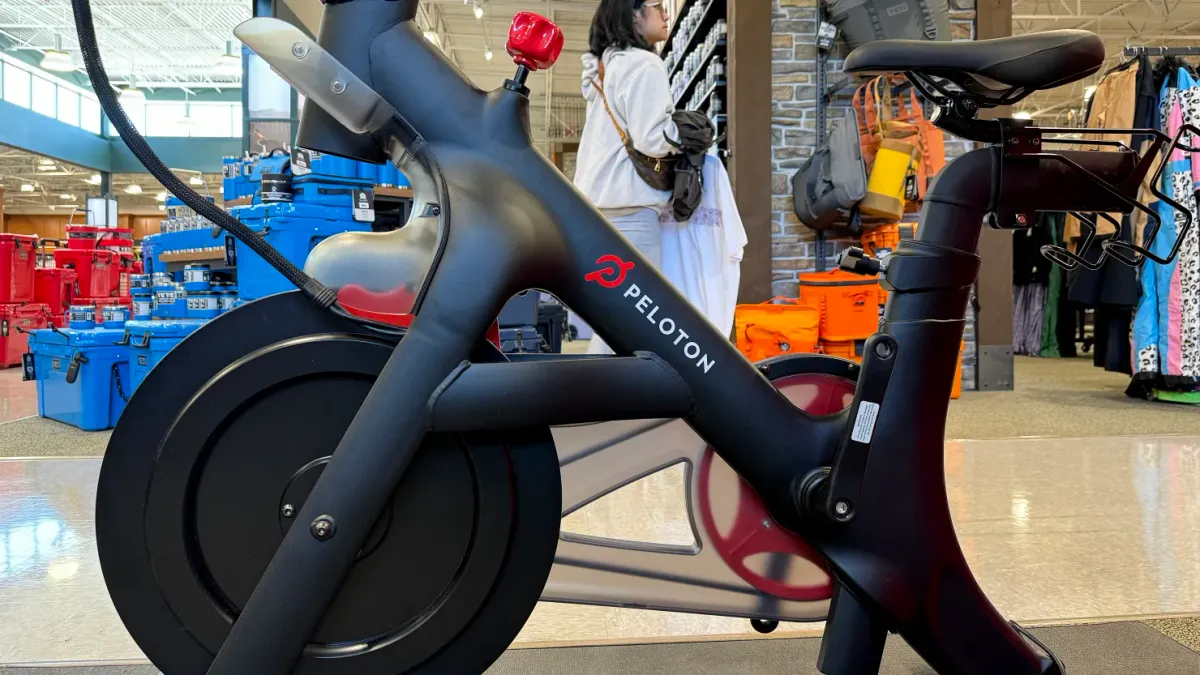Peloton Launches Official Resale Market for Used Bikes and Treadmills
Peloton debuts an official resale market for used bikes and treadmills, giving consumers affordable, company-backed fitness equipment with warranty protection.

Fitness giant Peloton unveils a dedicated resale platform, streamlining the buying and selling of pre-owned equipment as demand for more affordable options grows.
Peloton, the renowned interactive fitness company, has launched an official resale marketplace for its used bikes and treadmills, marking a major shift in its retail strategy. The move, announced Tuesday, aims to capture greater value in the secondary market and extend Peloton’s reach to cost-conscious consumers seeking high-quality home fitness equipment.
Peloton’s Foray into Resale: What’s New?
Peloton’s new resale program allows existing owners to list pre-owned bikes and treadmills directly through an official company-run platform. Prospective buyers will now have a secure, streamlined avenue to purchase gently used Peloton equipment with company-backed guarantees—a first in the connected fitness industry.
"By establishing this marketplace, we’re providing members a trusted way to upgrade their equipment and making Peloton more accessible," said Chief Executive Officer Barry McCarthy, "This reflects our commitment to sustainability and market innovation."
The platform, launching initially in select U.S. metro areas, is expected to expand nationwide over the coming months.
The Secondary Market: Meeting Consumer Demand
With home fitness trends stabilizing post-pandemic and a growing number of consumers seeking affordable alternatives, the resale market has emerged as a critical avenue for fitness brands. Peloton’s proactive move acknowledges a vibrant secondary ecosystem that previously thrived on third-party sites like Facebook Marketplace, Craigslist, and eBay.
According to industry analyst Tom Greco at NPD Group, “Peloton-owned resale channels can help the brand recapture value, ensure quality, and build customer loyalty.”
How Peloton’s Resale Platform Works
Registered Peloton owners can list gently used bikes and treadmills via the company’s new online hub. Peloton handles inspection and refurbishment when equipment is resold; buyers receive products with a limited warranty and the option to add a new membership subscription.
Key features include:
Streamlined Listings: Owners submit photos and basic details.
In-House Vetting: Peloton inspects and certifies returned gear.
Warranty Support: Purchases include a limited warranty, adding peace of mind.
White-Glove Delivery: Professional set-up and support, mirroring the new-product experience.
“Customers want assurance that their pre-owned bike will work as intended,” said Angela Su, Peloton’s VP of Product. “By controlling the process, we’re reducing quality concerns and friction.”
Peloton’s Strategy: Access, Sustainability, and Growth
The resale platform complements Peloton’s broader strategy to drive growth through affordability and sustainability. The company has faced headwinds from slumping new product sales and increased competition from rivals such as NordicTrack and Echelon. By tapping into the resale market, Peloton aims to capture new customer segments and extend the lifecycle of its equipment.
A Peloton spokesperson added in a statement, “Resale supports our sustainability goals by helping keep equipment in use and out of landfills.”
Secondary market activity is also expected to encourage upgrades among current members, who can trade in older models for discounts on the latest versions.
Mixed Reactions: Industry and Consumer Perspectives
Peloton’s resale initiative has drawn praise for its focus on quality control and consumer safety, but some analysts warn of potential drawbacks.
Pricing Impact: Direct company involvement could drive up used equipment prices compared to peer-to-peer markets.
Market Cannibalization: There’s concern that resale availability could undercut new product sales.
Operational Challenges: Logistics for inspection, refurbishment, and delivery add new layers of complexity and cost.
However, early consumer feedback has been positive. “As someone who wants a Peloton but couldn’t justify the original price, I’m excited by this,” said Jennifer Lee, a Brooklyn-based fitness enthusiast. “Getting a warranty is a bonus.”
Competitor Landscape and Market Trends
Other major fitness equipment brands are monitoring Peloton’s move closely. NordicTrack recently piloted its own certified pre-owned program, while apps like Zwift leverage software subscriptions for hardware-agnostic access.
According to Statista, the U.S. at-home fitness equipment market was valued at over $6 billion in 2024, with secondary sales comprising at least 15% of total transactions.
“Peloton’s resale platform is a natural evolution, especially as hardware sales plateau and recurring subscriptions become the primary growth lever,” Greco explained.
What’s Next for Peloton and the Fitness Market?
Peloton’s resale market launch is likely to set industry standards for certified pre-owned programs, blending quality assurance with affordability. Analysts predict similar platforms will emerge as consumers demand more financially and environmentally sustainable options.
The company is expected to monitor buyer and seller feedback closely before considering expansion into international markets and other equipment types, such as rowers and strength machines.
Sources
CNBC: Peloton launching resale market for used bikes, treadmills
Statista: “U.S. At-home Fitness Equipment Market Value 2024”
NPD Group Analyst Comments (as cited by CNBC)
Additional public Peloton investor communications



